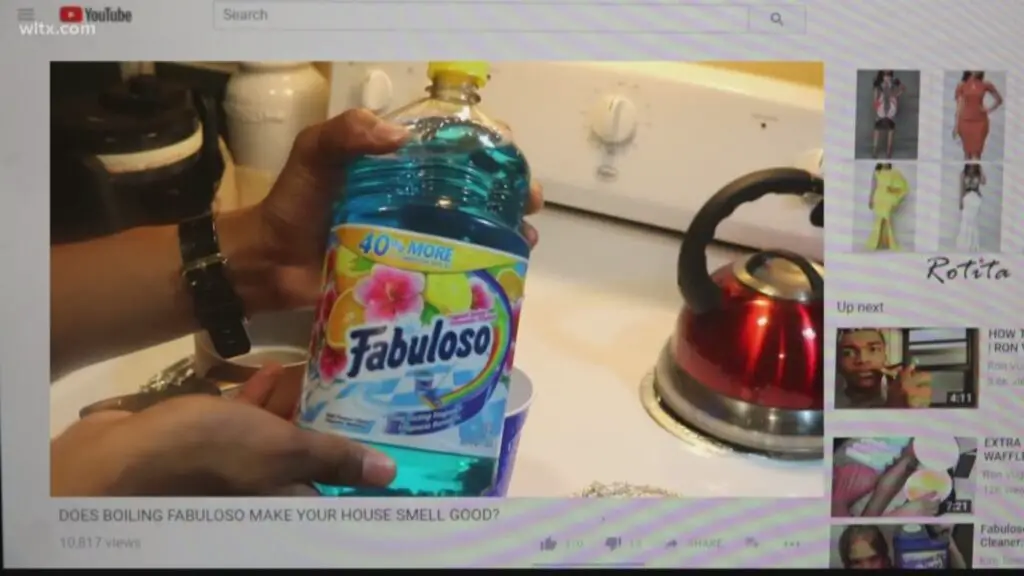Pine Sol is a popular cleaning agent known for its pleasant pine scent. It is used to clean floors, surfaces, and bathrooms, among other applications. However, some people may consider boiling Pine Sol to enhance its effectiveness or use it as an air freshener or disinfectant spray. This article explores the safety concerns of boiling Pine Sol and suggests alternative solutions.
What is Pine Sol?
Pine Sol contains several ingredients that work together to provide an effective cleaning solution. Its primary ingredient is pine oil, derived from pine trees’ needles. Pine oil has been used for centuries for its antiseptic properties, making it a useful cleansing agent.
In addition to pine oil, active chemicals such as sodium carbonate and sodium alkyl benzene sulfonate are added to ensure proper cleaning and disinfecting of surfaces. Because of its natural cleaning ingredients, Pine Sol has become a popular alternative to chemical-laden cleaners.
Why Would Someone Boil Pine Sol?
While boiling Pine Sol may enhance its effectiveness in some instances, it can be dangerous if not done carefully. Some reasons someone might consider boiling Pine Sol include:
- Attempting to increase its cleaning power: Boiling the liquid concentrate can make it more potent since evaporation leaves behind a concentrated residue.
- Using it as an air freshener or disinfectant spray: Boiling Pine-Sol on your stove will release steam containing disinfected droplets that will help eliminate odors in your home.
- Using it to steam-clean surfaces: Steam cleaning with boiled pine sol could ensure deep-cleansing on floors and other hard-to-reach areas.
However, before taking any steps towards using boiled pine sol powder or concentrate one should always keep in mind the safety warnings associated with this beloved household accessory.
Is Boiling Pine Sol Safe?
Boiling Pine-Sol raises several health and safety concerns primarily related to the risks of inhaling its fumes.
When Pine Sol is boiled, it releases a potent vapor that contains chemicals such as terpenes, alcohols, and hydrocarbons. These chemicals can cause adverse health effects when breathed in over an extended period.
These are some of the health risks associated with boiling Pine Sol:
- Irritation to eyes, nose, throat, and lungs: Inhaling these toxic vapors can irritate the respiratory system’s sensitive lining, causing a burning sensation in the eyes and nasal passages.
- Headaches, dizziness, nausea, and vomiting: Exposure to Pine-Sol vapors has also been linked to headaches, dizziness and increased nausea that may result in vomiting if not well managed.
- More serious long-term health effects from extended exposure: Routine exposure to these harmful chemicals in concentrations produced by boiling Pinesol may lead to chronic respiratory disorders or even cancer.
Precautions When Boiling Pine Sol
Taking precautions is essential when handling any household cleaning agents like Pine-Sol. Here are some protective measures you should consider taking when boiling Pine Sol:
- Wear a mask or respirator: To prevent inhaling hazardous vapor from pine-sol concentrate or powder ensure you wear appropriate respiratory protection like respirators or proper dust masks such as 3M 6300 Half Facepiece Reusable Respirator
- Ensure adequate ventilation: Keep your windows open while cleaning with every volatile liquid product; therefore always keep this warning at your disposal when suffering from chest pain or difficulty breathing despite opening your windows immediately leaving home to go outside for fresh air.
- Avoiding contact with skin and eyes: Any type of cleaning solution containing pine oil can cause skin irritation if used over time; similarly can produce chemical burns on your eye retina leading further down into ear canal damage. Be sure to use gloves and safety goggles for protection
Alternative Solutions to Boiling Pine Sol
Boiling Pine-Sol is not the only solution for cleaning and disinfectant needs. Several alternative home remedies can be used instead of boiled pine sol, they Include:
- Vinegar: A well-known natural cleaning agent vinegar with which to make homemade cleaners.
- Baking soda: An ideal substitute that can be used in combination with vinegar to clean sinks, bathrooms or remove mold
- Hydrogen peroxide: This is an eco-friendly strong oxidizing agent that can clean anything from toilets to floors without causing harm.
Conclusion
Pine Sol is a highly effective cleaning agent with many household uses. However, boiling Pine Sol may release toxic vapors that could lead to respiratory irritation and long-term health problems. If you do choose to boil Pine Sol in your home, always take appropriate safety measures such as proper ventilation and protective gear like respirators or dust masks. With these precautions kept in mind you could still safely utilize Pine-Sol for all your cleaning needs or otherwise consider an alternative solution.
Q&A
- Q: Can Pine Sol be boiled safely?
A: It is not recommended to boil Pine Sol. The high temperature can cause the solvents in the cleaner to vaporize and release harmful fumes into the air.
- Q: Are there any health risks associated with boiling Pine Sol?
A: Yes, boiling Pine Sol can be dangerous to your health. The fumes that are released when Pine Sol is heated can cause irritation to the eyes, nose, and throat. Prolonged exposure to these fumes can also lead to headaches, dizziness, and nausea.
- Q: What should I do if I accidentally boil Pine Sol?
A: If you accidentally boil Pine Sol, it is important to immediately turn off the heat source and move the pot or container outdoors or into a well-ventilated area. Avoid breathing in the fumes and allow them to dissipate before entering the room again.
- Q: Are there any alternative ways to use Pine Sol that don’t involve boiling it?
A: Yes, there are many alternative ways to use Pine Sol that don’t involve heating it up. Some popular uses include diluting it with water as a general cleaner, using it as a laundry detergent booster, or adding it to a mop bucket for deep cleaning floors. Always follow the label instructions for safe use of this powerful disinfectant cleaner.






